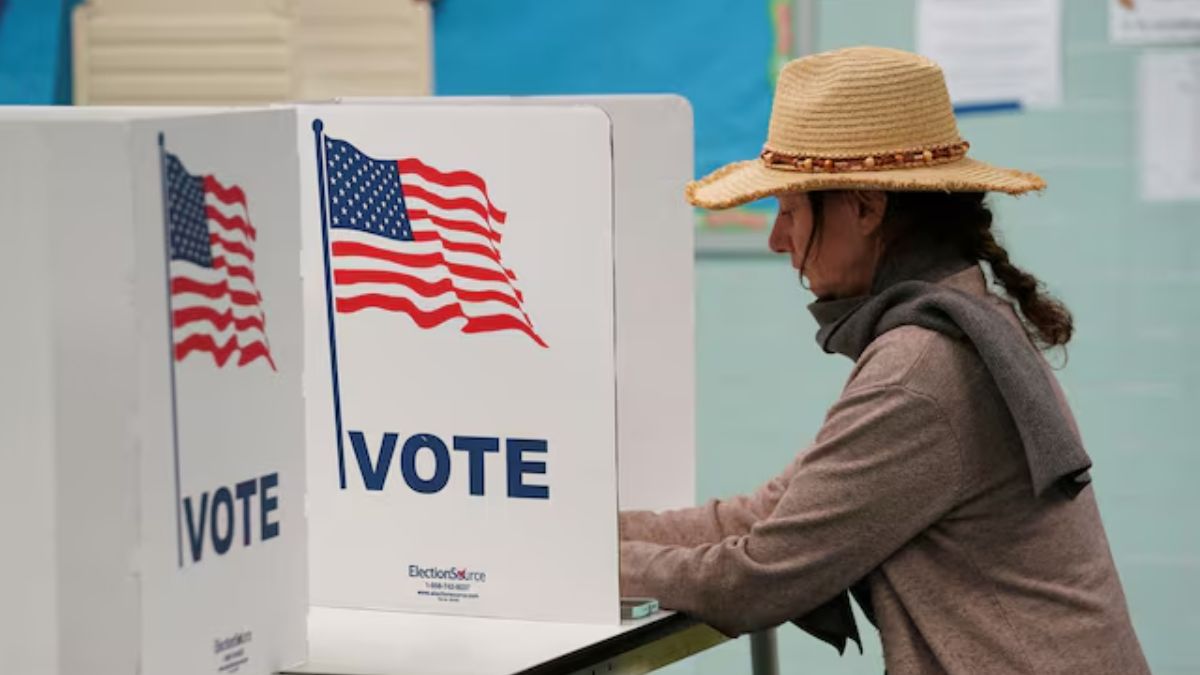Underscoring how close the 2024 US presidential election is, top US pollster Nate Silver has said that even though his gut feeling says Republican nominee Donald Trump is going to win, you should not trust anyone’s gut feeling.
In an article for The New York Times, Silver noted that the election could go either way as the margin between the two candidates in seven battleground states, the states that are actually going to decide the election, is 1-2 per cent, which is well within the margin of error.
“I don’t think you should put any value whatsoever on anyone’s gut — including mine. Instead, you should resign yourself to the fact that a 50-50 forecast really does mean 50-50. And you should be open to the possibility that those forecasts are wrong, and that could be the case equally in the direction of Mr. Trump or Ms. Harris,” said Silver, the founder of polling and election analysis platform FiveThirtyEight.
Silver maintained that both former President Trump and Vice President Harris have effectively an equal possibility of winning the election.
The comments come at a time when some leading forecasts and polls, such as the Decision Desk HQ-Hill forecast, Economist forecast, and Fox News poll, have put Trump ahead of Harris with less than two weeks to the Election Day on November 5.
Silver went on to flag several issues with polling and the interpretation and analysis of polling data that could lead to skewed perceptions regarding the election.
Impact Shorts
More ShortsSilver said that favourable polling analysis for Trump could also be a result of ‘recency bias’.
When asked who will win, most people say Trump because of recency bias as he won in 2016, when he was not expected to and then almost won in 2020 despite being well behind in the polls, noted Silver.
However, Silver noted that people might not remember 2012 when former President Barack Obama not only won but beat the pollsters’ predictions.
Silver also sought to downplay a popular theory that says Trump’s voters are less likely to admit publicly that they are going to vote for him over stigma attached to him and the Republican Party. As per the theory, many voters say publicly that they would vote for the Democratic Party but actually vote for Trump as they are closeted Trump supporters.
“But there’s not much evidence for the shy-voter theory — nor has there been any persistent tendency in elections worldwide for right-wing parties to outperform their polls. (Case in point: Marine Le Pen’s National Rally party underachieved its polls in this summer’s French legislative elections.) There’s even a certain snobbery to the theory. Many people are proud to admit their support for Mr. Trump, and if anything, there’s less stigma to voting for him than ever,” noted Silver.
The real problem, noted Silver, may be the ’non-response bias’, referring to the pollsters’ tendency in 2016 and 2020 to not reach out to enough people who could have voted for Trump for surveys, resulting in polls artificially skewed against Trump.
Just it is possible to underestimate Trump in polls, it is also possible that pollsters overestimate him and underestimate Harris, noted Silver.
Highlighting that the Democrats have performed well for two years straight in special elections, ballot referendums, and the 2022 midterms, Democrats shouldn’t hang their hopes just yet.
)